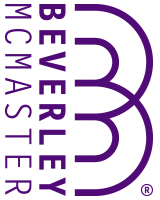Have you ever wondered why so many change programmes fail despite the constant stream of advice and guidance? According to McKinsey about two thirds of programmes fail to live up to expectations which is a staggering statistic. The programmes either over promise at the outset, or there is something significantly wrong with the project implementation.
What might be happening? Putting aside for a moment any weaknesses in the implementation plan, I’ve often thought that we are missing a trick when it comes to asking people to take on something new. We know that change is constant – regardless of its scale. Stuff happens on a daily basis that requires a different response from us. Is it I wonder, time to include a different perspective on change?
Many reports suggest that we fail to appreciate the ‘irrationality of human nature’ in the planning and management processes. Scott Keller and Carolyn Aiken in ‘The Inconvenient Truth About Change Management’ refer to a number of counter-intuitive insights that could help us to adopt more productive approaches. Whatever new recipe we use for improving change management I think that there is something else that we could be paying attention to.
An Ontological Approach to Change
Taking an ontological approach to change (ontological – from the Greek word that translates into the science of being) asks us to accept that we develop and grow through three domains. They are the domain of language (knowledge/cognitive understanding), the domain of emotion and the domain of the body. The term ‘body’ in reality refers to much more than a our simple physical presence, but for the purposes here we will limit it to awareness of our physical selves.
The short version to the relevance of this approach is that language is generative not just descriptive, we live in a mood and experience daily a gamut of emotions, our physical selves are both shaped by, and shape our language, moods and emotions.
Try this quick experiment. Call to mind something that makes you angry and frustrated. Notice the language you use to think about it, notice how you feel emotionally, notice your physical sensations (eg changes to breath, collapsing, contraction, gripping, temperature). Now call to mind something that makes you joyful – same process. You will I am sure be aware of feeling different in both states. It’s obvious isn’t it. You could try the same thing calling to mind different changes that you have experienced, ones you welcomed and ones you did not and you will notice differences in each of these domains.
The point is that we rarely if ever, pay attention to change through these lenses. Let’s take language of a moment. Think about the terms we use – managing change, managing resistance, change agent, change champion to name but a few. I’ve worked on change projects and still the terminology generates for me a sense of ‘control’ although ironically, that, says as much about me as it does the terms.
Change is Personal
Our very personal response to change internally is governed by our own history, experience and perspectives. What one person finds dis-orientating another will welcome. How I wonder can we create the kinds of conversations and awareness that will support people to understand with more colour their ‘habitual’ or ‘conditioned’ reactions to change? How can we help them discover for themselves responses that will propel them towards a way of being with change that is more choiceful and helpful?
The possibilities for embracing what is unknown with confidence and for feeling far more empowered to navigate our own destiny with greater ease is available to us once we look more broadly at not just what is being asked of us, but how we are with what is being asked.
Perhaps a fundamental tenant of change management programmes should also include investment in teaching people to explore for themselves their reactions to change using an ontological approach and then equipping them with the wherewithal, the skills to be able to generate for themselves a response that more productively serves them and their organisation.











